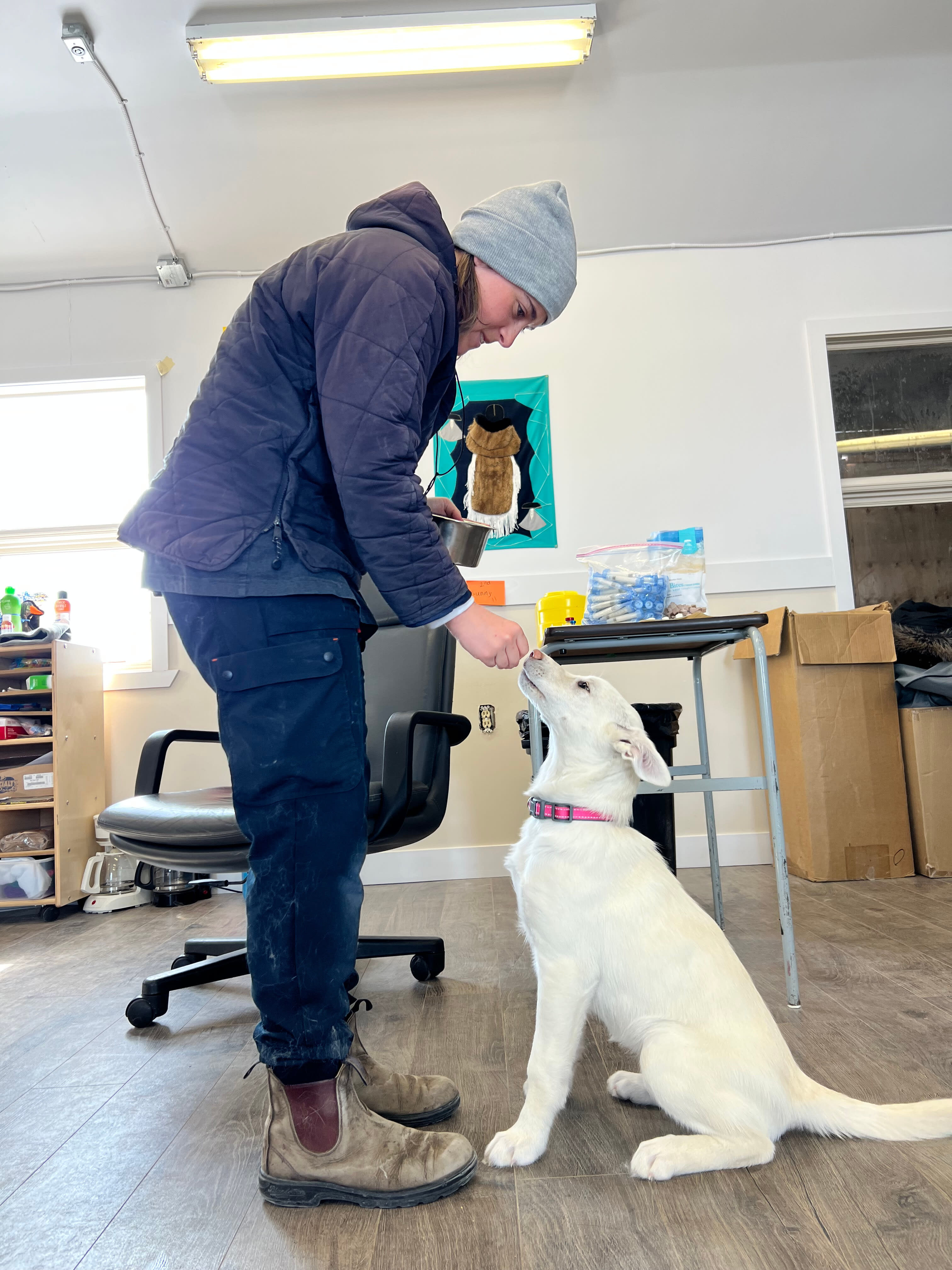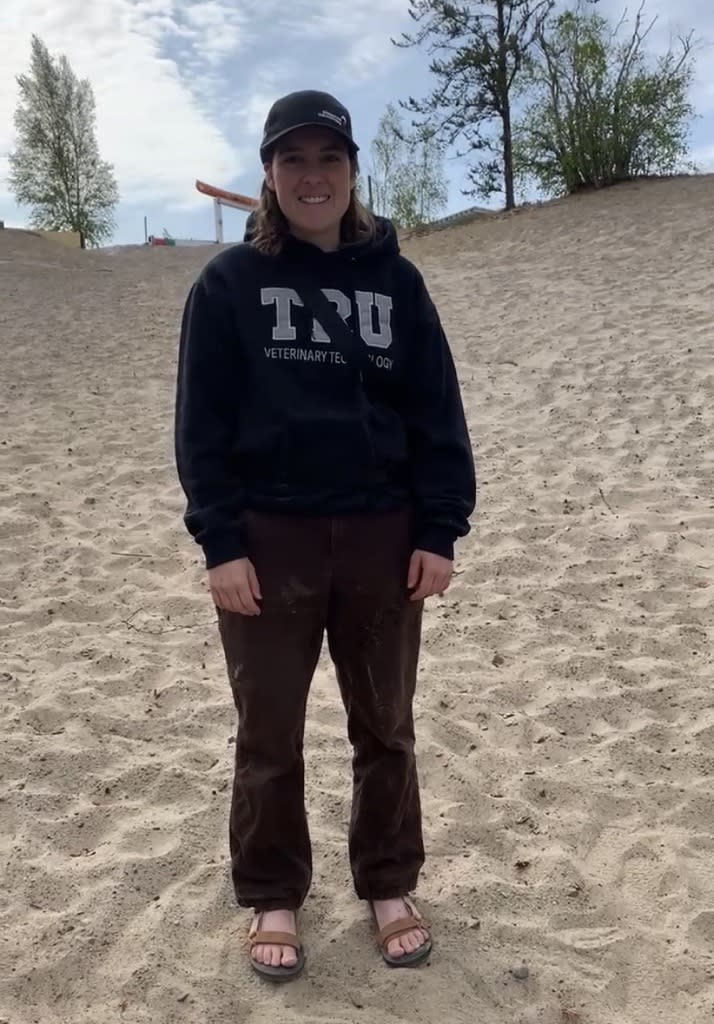Across Canada's North, access to veterinary care is extremely limited. In places like Igloolik, NU, the closest veterinarian is in Ottawa, (yes — Ottawa, Ontario!), and in Yellowknife, NWT, emergency veterinary care can only be accessed by travelling to Edmonton — an 18-hour drive away. Needless to say, increasing the capacity for animal care across Nunavut, the Northwest Territories, and Yukon, is a significant need not only animal health, but also for the health of the people that live with and around them.
To help address this need, VWB/VSF's Northern Animal Health Initiative (NAHI) is supporting remote northern communities with access to animal health care and training. One of NAHI's programs is our Access to Care Awards, which provide scholarships and bursaries for northern students studying animal health-related programs, along with pet first aid training for members of remote communities.
 Alison at a clinic in Gjoa Haven, NU.
Alison at a clinic in Gjoa Haven, NU.
Alison Buckland, a resident of Yellowknife, Northwest Territories, and currently a veterinary technician student, was a recipient of one of these bursaries in February 2023. She has recently entered her second year at Thompson Rivers University (TRU) in Kamloops, B.C.
"When I was in high school, I was interested in pursuing animal health. I ended up not applying for the program , and received a degree in Kinesiology instead," said Alison. "[After university], I came back to Yellowknife and struggled to get a job, and I began working at the NWT SPCA. I met Dr. Michelle Tuma and was very interested in the surgeries going on. I remember we had a dog come in with a fish hook that had been caught in its lip, and I became interested in being hands-on with that, and asked a lot of questions," said Alison. After volunteering at the NWT SPCA, Alison decided to take the plunge and applied to TRU'S Veterinary Technician program.
"A lot of kids who [want to become veterinary technicians] can't stay in Yellowknife to get educated," Alison explained, adding that, due to the shortage of veterinary technicians to practice under, it's hard to complete your education in the Northwest Territories. "I'm hoping when I come back, I'll be a registered vet tech and can begin mentoring those interested in perusing animal health as a career," said Alison.
In May, Alison joined other members of VWB/VSF's Northern Animal Health Initiative team on a visit to Gjoa Haven, NU, where she provided behavioural training and other animal health support for local animals and pet guardians. "We met some young kids who were interested in grooming and going into veterinary medicine, and they'd be great people to continue supporting, because they know they'll be returning to the community with the desire to help," said Alison, adding: "It's hard to draw people from the south to live in the North long-term. It's a lot easier to encourage and support people who are from the North and are wanting to stay in the North."
 Alison in Yellowknife
Alison in Yellowknife
Although a veterinary shortage has been reported Canada-wide, the northern territories have been facing extreme shortages for years, with the Northwest Territories containing approximately three veterinary clinics across the entire territory, and Nunavut is currently without a single veterinarian. Many students from the North who must move to southern Canada for animal health training remain in the South, as job opportunities are simply more plentiful.
"I'd love to get some experience here [in Yellowknife], but it's not the same as getting experience from the veterinary clinics down south," explained Alison. "My goal is to manage a clinic or work alongside local veterinarians, like Dr. Tuma."
Now in her final year of school, Alison hopes to work in shelter medicine and, in particular, work with behavioural dogs either in shelters, to help ensure they can be adopted and find their forever families, or to aid in receiving medical care in a fear-free way.
Interested in learning more about our Access to Care Awards? Click here!




